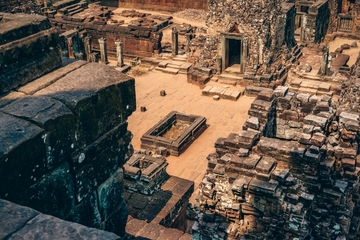
#Data analysis programs archaeology full#
Students learn the rationale, technical details, and results of a wide array of field methods in the context of site location, site characterization, and full scale data recovery of prehistoric and historic archaeological sites. This course is designed to expose students to the full spectrum of field methods now in use in contemporary anthropological archaeology. Within the Archaeology (B.A.) concentration, students focus on the excavation of archaeological sites and the analysis and interpretation of artifacts, with additional training in geological sciences. An additional five courses (20 credits), Physical Geology/Lab (4 credits), and two additional Anthropology/Archaeology courses numbered above 200 are required. Emphasis is placed on helping students develop the skills necessary to formulate, discuss and defend their own set of anthropological values through critical analysis and study of case studies, ethical principles, and codes of conduct. It exposes students to the many issues that may arise during a career in anthropology (or in the social science) and prepares them to engage them productively. This course explores the ethical, legal and practical dimensions of contemporary anthropology and its sub-disciplines through a consideration of topics such as anthropology as a profession, ethics and codes of conduct, national and international approaches to cultural/heritage management, the relationship between anthropology and diverse publics, and anthropological education. Lecture topics include, but are not limited to, colonial legacies, popular culture and stereotypes, indigenous identities, tribal-federal relationships, sovereignty, cultural survival and revitalization, and ethics. The course provides an overview of the salient issues affecting contemporary Native peoples’ social, cultural, economic and political activities.

This course introduces students to the diverse lives and livelihoods of Native Americans in contemporary society with an emphasis on the range of issues facing Native peoples today. Major topics include domestication processes, the Green Revolution, intentional and unintentional modification of plant communities, and an examination of those plants that provide drugs, food, beverages, and fibers necessary to daily life.ĪNTH 220: Native Americans in Contemporary Society

This course examines the varied and complex interrelationships between plants and people. People depend on plants for food, clothing, shelter, medicines, and a host of other daily needs.

However, our no-concentration track students do not need to choose a particular concentration. in Anthropology/ Archaeology must complete an additional 3 required departmental methods and materials courses (9-13 credits), Physical Geology and Lab (4 credits), and 5 additional Anthropology/Archaeology courses numbered above 200. Like the other degree tracks, student receive a broad anthropology background. All Anthropology/Archaeology students complete 9 required departmental core courses (28 credits), Statistics (3 credits), and successfully complete the intermediate level of a foreign language (3-9 credits).


 0 kommentar(er)
0 kommentar(er)
